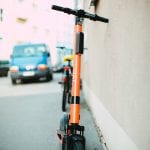

We are Attorneys and We are Riders
We Represent Idaho Cyclists
Had a Bicycle Crash in Idaho?
Contact Ben Dodge to see if the bicycle crash lawyers at Bike Accident Attorneys (BAA) can help. Unlike other lawyers who attempt to represent cyclists, our BAA lawyers actually ride and race their bicycles as well as appear and win in court. Most attorneys are just pencil pushers. We are court room litigators who are passionate about riding our bikes and we have associated local counsel in other states to allow us to help you in your state. Based on our expertise and experience we have also been admitted in other states to appear in court for our bicycle crash clients on a case by case basis. We can help you directly or ensure that you get the quality help you need in your state. Contact Ben Dodge now to see how we can protect your rights.
3 Tips on Choosing the Best Bicycle Crash Lawyer and Avoid Being Scammed
So how do you know if you have the best lawyer? There are 3 things to investigate when hiring a bicycle lawyer that can help you avoid a scammer. Some of that depends on what you think the “best” really means. To me, it is simple. The “best” lawyer will get you to the most advantageous position possible with as little cost as possible. That’s it. Nothing else to it. I have seen too many lawyers give up or miss out on incredible opportunities for their clients because of their own egos arguing the irrelevant issues or pushing too hard in a direction that only generates their own fees as opposed to the results the client would rather have.
The most advantageous position is sometimes not even what the client comes in asking for. I can’t tell you how many times I probably talked myself out of a job in an initial consult because what the client wanted actually puts them in a worse position and I wasn’t afraid to tell them so. It would have been so much easier to just tell them what they desperately wanted to hear, help them feel heard and let them vent a little. All just tell them we better hurry up and rush to court so they can be vindicated. When in reality, that won’t help them at all. So that is what many lawyers do- they try to figure out what the client wants emotionally and then sell them a legal service that matches that emotional need and of course charge them for it based on whatever they think the client is able to pay.
Obviously not all attorneys are this cold-hearted. Many of us actually care. Many of us strive to do right by the client as opposed to just trying to do right by the pocket book.
Here are some general things to watch out for when looking for an attorney, especially a bicycle accident lawyer (I don’t like the word accident, I prefer “crash” – but most of the world uses the term accident and I understand why, so I sue it too). Here are the issues to watch out for:
1) Specific Knowledge
Do they have the specific knowledge required to handle your case? Just because they graduated from law school doesn’t mean they know anything about cycling! In fact, in my opinion, most of the country doesn’t know anything about cycling. It is crazy that all sorts of professionals from police offices charged with enforcing cycling safety to insurance adjusters responsible for finding fault don’t know anything about cycling laws. This is especially true with local rules, ordinances, and even more so with knowledge of local customs and implied expectations of cycling culture and more. Now fast forward to the moment when you are looking for an attorney to help you with your crash (your bicycle accident case) and you see a billboard on the side of the freeway, or a TV commercial, or even a Google search where the words cycling lawyer were used… How much specific knowledge of bicycle cases do you think they really have? Ask them how often they ride? Ask them what their favorite route is? Ask them if they could buy any bike on the planet what would it be and why? These questions will help you quickly identify if they are even remotely plugged into the cycling community and whether or not they have specific knowledge relating to cycling. Why is this important? SIMPLE- as a cyclist you already know that most people (drivers) hate that we are out on the roads. You already have an uphill court battle of public opinion. Being right on some traffic issue isn’t enough for us. Your lawyer must know this intimately in order to successfully navigate the complex negotiations of your case with the insurance company and opposing attorneys and then ultimately in a court room where you can bet no one on the jury will be a cyclist.
Also on the topic of specific knowledge. How many cases like this issue have they handled? What were the outcomes? How confident do you feel with their answers to these questions? Specific case knowledge is helpful. Do they have experience with the opposing insurance company? With that specific police department? With your judge? And on and on.
Specific knowledge is very helpful and you can’t buy it with expensive marketing on billboards, commercials, etc. It is earned with blood, sweat, and sometimes tears through years of experience.
2) Desk or Courtroom
The next thing to investigate is whether or not the attorney you’re thinking about hiring is a desk lawyer (I fondly refer to these lawyers as pencil pushers) or a courtroom lawyer. There is a need for all sorts of lawyers. But unless you are planning on having your bicycle accident attorney draft a will or some contract for you, then you want a courtroom lawyer not a pencil pusher.
I know this is a guess, but in my experience it seems like 95% of lawyers, especially the ones who end up on billboards and commercials, are just pencil pushers. Once their cases get to tough they refer them out to a real lawyer to finish the courtroom stuff for them. Most attorneys talk a big talk in their consult with potential clients about how good they are, but when push comes to shove and they have to actually prove it to you in a courtroom with you watching, their peers (opposing lawyers on the other side of your case) and in front of a judge and jury- they simply freak out and completely drop the ball or settle for less than you should ever take just to avoid the scary courtroom.
Don’t mistakenly hire a pencil pusher. Hire a bicycle accident lawyer who thrives in the courtroom. One simple question to help catch them off guard is ask them when is the last time they were in court? What was it about? What kind of hearing was it? What was the argument they proposed and made to the judge? How did it turn out? These simple questions will help you find out if they are pencil pushers or not. Their hesitation or odd answers are a dead give away that they are likely misleading you on their courtroom abilities and experience.
We are courtroom lawyers, sometimes even going multiple times per week to court. We file lawsuits, we don’t just write a few meaningless settlement letters and sell our clients on how good the settlement is- we prove it to our clients.
3) Do You Recognize Them from a Billboard or Commercial?
Yes I said that right, do you actually recognize them from a billboard or a TV commercial? Why is this even a thing? Well, it sounds harsh but those lawyers out there spending hundreds of thousands of dollars per year (for some they spend that per month) just to recruit new clients may be struggling to get their current and past clients to even refer to them… Yep, what if your lawyer was so good and you were so impressed that you happily sent business to him/or her? See how powerful that is? I’m not saying that everyone who advertises in our line of work is a horrible lawyer. What I am saying is that it is a bit suspect since advertising is NOT cheap and it begs the question as to why they have to advertise in the first place? Is their reputation with their own clients so bad that they have to find an alternative source to finding clients? Possibly. I’m one of those guys who avoids, in fact runs away from any professional I see on a billboard. I’d much rather consult a trusted friend and get their opinion as to whom I should see or NOT see based on their experience.
Not all lawyers who advertise are bad. But like I said, I personally run away from any professional on a billboard or TV commercial. A good old fashioned referral has always proved to be much better much more often. Just sayin’.

These are just 3 of the many things to look out for when you hire a bicycle accident lawyer. Call my office up and we can chat over the phone sometime about all the other million things to look out for like attorney billable hour quotas, bonus structures, professional reputation among peers, and so much more!
We are here for you. We got your back. We protect our own like you’re a member of our tribe. Good luck. Be safe out there and keep the rubber side down.
Contact Ben Dodge and let the lawyers in the Bike Accident Attorneys National Network help you. We will assist you in your case and/or find someone for you in your state that we can trust and recommend. We have your back. We are here for you.
#MyLawyerDoesntSuck


Need a Consultation?

Idaho Bicycle Accident Statistics
Resident Population
1,683,000
Total Traffic Fatalities
253
Pedalcyclist Fatalities
6
Percentage of Total Traffic Fatalities
2.4%
Pedalcyclist Fatalities per Million Population
3.56
Idaho Bicycle Statutes
State of Idaho Bicycle Laws
Title 49, IDAHO STATE CODE,
updated 10-20-04
49-714. TRAFFIC LAWS APPLY TO PERSONS ON BICYCLES AND OTHER HUMAN-POWERED VEHICLES — DUE CARE.
- Every person operating a vehicle propelled by human power or riding a bicycle shall have all of the rights and all of the duties applicable to the driver of any other vehicle under the provisions of chapters 6 and 7 of this title, except as otherwise provided in this chapter and except as to those provisions which by their nature can have no application.
- Every operator or rider of a bicycle or human-powered vehicle shall exercise due care.
49-715. RIDING ON BICYCLES.
- A person propelling a bicycle shall not ride other than upon or astride an attached permanent and regular seat.
- No bicycle or human-propelled vehicle shall be used to carry more persons at one (1) time than the number for which it is designed and equipped.
- An adult rider may carry a child securely attached to his person in a backpack or sling or in a child carrier attached to the bicycle.
49-716. CLINGING TO OR FOLLOWING VEHICLES.
- No person riding upon any bicycle, coaster, roller skates, skateboard, sled or toy vehicle shall attach it or himself to any vehicle upon a highway.
- The provisions of this section shall not prohibit the attachment of a bicycle trailer or bicycle semitrailer to a bicycle if that trailer or semitrailer has been designed for that attachment.
- No person riding upon any bicycle or human-powered vehicle shall follow a vehicle so closely as to constitute an immediate hazard to the rider.
49-717. POSITION ON HIGHWAY.
- Any person operating a bicycle upon a roadway at less than the normal speed of traffic at the time and place and under the conditions then existing shall ride as close as practicable to the right-hand curb or edge of the roadway except under any of the following situations:
(a) When overtaking and passing another bicycle or vehicle proceeding in the same direction.
(b) When preparing for a left turn at an intersection or into a private road or driveway.
(c) When reasonably necessary to avoid conditions including fixed or moving objects, parked or moving vehicles, bicycles, pedestrians, animals, surface hazards or substandard width lanes that make it unsafe to continue along the right-hand curb or edge. - Any person operating a bicycle upon a one-way roadway with two (2) or more marked traffic lanes may ride as near the left-hand curb or edge of the roadway as practicable.
49-718. RIDING TWO ABREAST.
Persons riding bicycles upon a highway shall not ride more than two (2) abreast except on paths or parts of highways set aside for the exclusive use of bicycles. Persons riding two (2) abreast shall not impede the normal and reasonable movement of traffic and, on a laned roadway, shall ride within a single lane.
49-719. CARRYING ARTICLES.
No person operating a bicycle shall carry any package, bundle or article which prevents the operator from using at least one (1) hand in the control and operation of the bicycle.
49-720. STOPPING — TURN AND STOP SIGNALS.
- A person operating a bicycle or human-powered vehicle approaching a stop sign shall slow down and, if required for safety, stop before entering the intersection. After slowing to a reasonable speed or stopping, the person shall yield the right-of-way to any vehicle in the intersection or approaching on another highway so closely as to constitute an immediate hazard during the time the person is moving across or within the intersection or junction of highways, except that a person after slowing to a reasonable speed and yielding the right-of-way if required, may cautiously make a turn or proceed through the intersection without stopping.
- A person operating a bicycle or human-powered vehicle approaching a steady red traffic-control signal shall stop before entering the intersection, except that a person after slowing to a reasonable speed and yielding the right-of-way if required, may cautiously make a right-hand turn without stopping or may cautiously make a left-hand turn onto a one-way highway without stopping.
- A person riding a bicycle shall comply with the provisions of section 49-643, Idaho Code.
- A signal of intention to turn right or left shall be given during not less than the last one hundred (100) feet traveled by the bicycle before turning, provided that a signal by hand and arm need not be given if the hand is needed in the control or operation of the bicycle.
49-721. BICYCLES ON SIDEWALKS.
- A person operating a bicycle upon and along a sidewalk, or across a highway upon and along a crosswalk, shall yield the right-of-way to any pedestrian, and shall give an audible signal before overtaking and passing a pedestrian or another bicyclist.
- A person shall not operate a bicycle along and upon a sidewalk or across a highway upon and along a crosswalk, where the use of bicycles is prohibited by official traffic control devices.
- A person operating a vehicle by human power, or operating a motorized wheelchair or an electric personal assistive mobility device upon and along a sidewalk, or across a highway upon and along a crosswalk, shall have all the rights and duties applicable to a pedestrian under the same circumstances.
49-722. BICYCLE RACING.
- Bicycle racing on the highways is prohibited except as authorized in this section.
- Bicycle racing on a highway shall not be unlawful when a racing event has been approved by the department or local law enforcement authorities on any highway under their respective jurisdictions. Approval of bicycle highway racing events shall be granted only under conditions which assure reasonable safety for all race participants, spectators and other highway users, and which prevent unreasonable interference with traffic flow which would seriously inconvenience other highway users.
- By agreement with the approving authority, participants in an approved bicycle highway racing event may be exempt from compliance with any traffic laws otherwise applicable, provided that traffic control is adequate to assure the safety of all highway users.
49-723. LIGHT AND REFLECTOR REQUIRED AT NIGHT.
Every bicycle in use at the times described in section 49-903, Idaho Code, shall be operated with a light emitting device visible from a distance of at least five hundred (500) feet to the front, attached to the bicycle or the rider, and with a reflector clearly visible from the rear of the bicycle.
49-724. ADDITIONAL LIGHTS AUTHORIZED.
A bicycle or its rider may be equipped with lights or reflectors in addition to those required in section 49-723, Idaho Code.
49-903. WHEN LIGHTED LAMPS ARE REQUIRED.
Every vehicle upon a highway at any time from sunset to sunrise and at any other time when there is not sufficient light to render clearly discernible persons and vehicles on the highway at a distance of five hundred (500) feet ahead shall display lighted lamps and illuminating devices as here respectively required for different classes of vehicles, subject to exceptions with respect to parked vehicles as stated herein.






